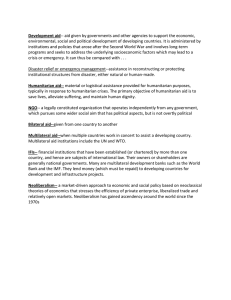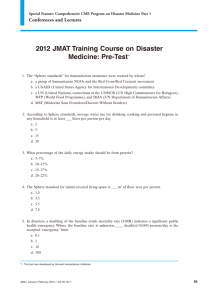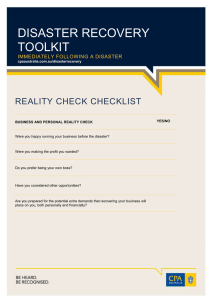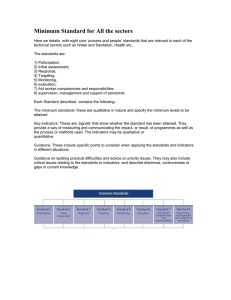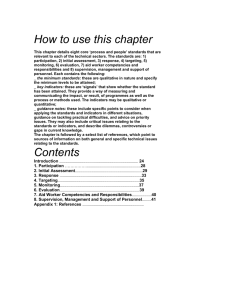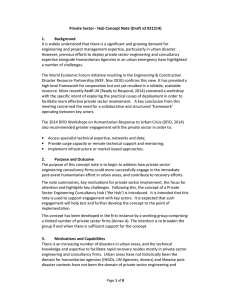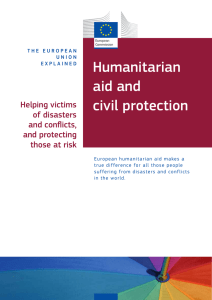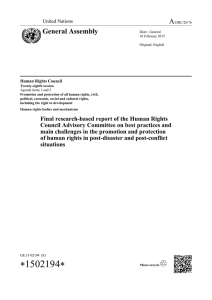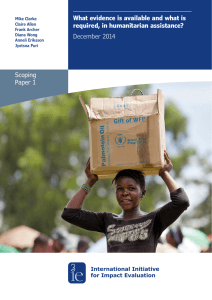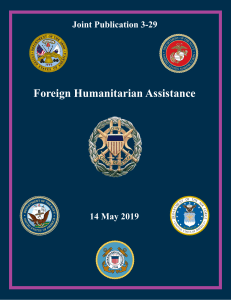Download DOCX (94.97 KB)
advertisement
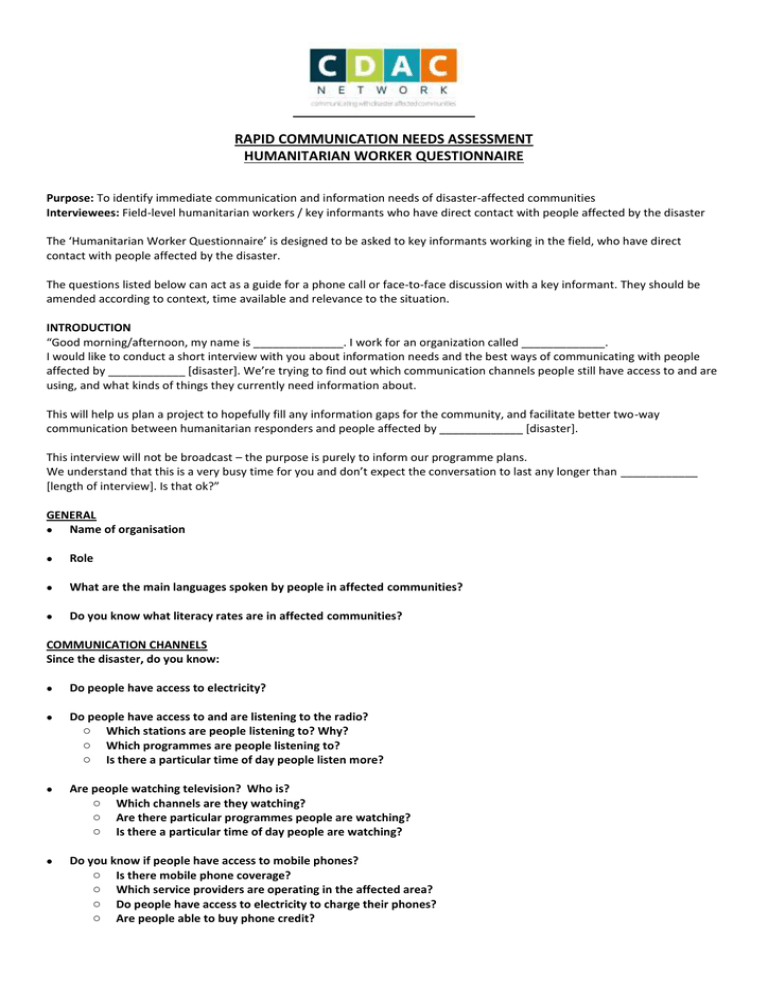
RAPID COMMUNICATION NEEDS ASSESSMENT HUMANITARIAN WORKER QUESTIONNAIRE Purpose: To identify immediate communication and information needs of disaster-affected communities Interviewees: Field-level humanitarian workers / key informants who have direct contact with people affected by the disaster The ‘Humanitarian Worker Questionnaire’ is designed to be asked to key informants working in the field, who have direct contact with people affected by the disaster. The questions listed below can act as a guide for a phone call or face-to-face discussion with a key informant. They should be amended according to context, time available and relevance to the situation. INTRODUCTION “Good morning/afternoon, my name is ______________. I work for an organization called _____________. I would like to conduct a short interview with you about information needs and the best ways of communicating with people affected by ____________ [disaster]. We’re trying to find out which communication channels people still have access to and are using, and what kinds of things they currently need information about. This will help us plan a project to hopefully fill any information gaps for the community, and facilitate better two-way communication between humanitarian responders and people affected by _____________ [disaster]. This interview will not be broadcast – the purpose is purely to inform our programme plans. We understand that this is a very busy time for you and don’t expect the conversation to last any longer than ____________ [length of interview]. Is that ok?” GENERAL Name of organisation Role What are the main languages spoken by people in affected communities? Do you know what literacy rates are in affected communities? COMMUNICATION CHANNELS Since the disaster, do you know: Do people have access to electricity? Do people have access to and are listening to the radio? o Which stations are people listening to? Why? o Which programmes are people listening to? o Is there a particular time of day people listen more? Are people watching television? Who is? o Which channels are they watching? o Are there particular programmes people are watching? o Is there a particular time of day people are watching? Do you know if people have access to mobile phones? o Is there mobile phone coverage? o Which service providers are operating in the affected area? o Do people have access to electricity to charge their phones? o Are people able to buy phone credit? Do you know if people have Internet access? o How are people accessing the Internet? o Are people in the affected area using social media? If so, which sites? INFORMATION NEEDS Do you know what the main information needs are for people in the affected areas? What are people asking a lot of questions about? What do you think they really need to know? Are you able to answer people’s questions on these issues? o If yes, what are the answers? o If not, where would we be able to get this information from? YOUR COMMUNICATION WITH COMMUNITIES How are you currently providing information to communities? How are you getting feedback from them? What about other agencies? In your view, is this proving to be effective or is there another way you would prefer to be communicating? If you could give people information over radio or using another form of mass media, what information would you like to give them? Depending on the programme we set up, we will hopefully be able to support you in getting vital information out to affected communities. Who is the best person to contact about this content? Depending on the programme we set up, we will likely be collecting feedback and questions from the affected community on the humanitarian response. Who is the best person for us to share this feedback with in your organisation? “Thank you for your time and we hope to be able to work in partnership with you during this response”
